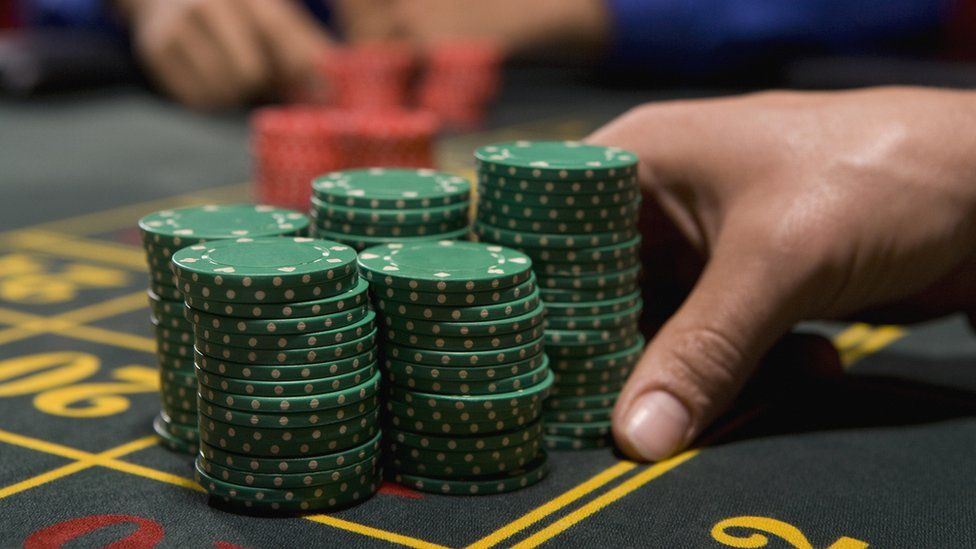Crown Resorts: Australian casino operator faces laundering probe
- Published

Australian casino operator Crown Resorts has revealed it is being investigated for possible breaches of anti-money laundering and counter-terrorism financing laws.
The company told the Australian Stock Exchange it had been contacted by the country's financial crime regulator.
Crown has casinos in Melbourne and Perth, and is building one in Sydney.
If breaches are proven, it could face millions of dollars in fines and threats to its casino licences.
The company is already facing separate inquiries into its licences and questions over how it brought in high-roller gamblers, largely from China.
Last year, Nine Entertainment newspapers reported allegations that Crown Melbourne had business ties to tour operators with suspected crime links in Asia.
The regulator, Australian Transaction Reports and Analysis Centre (Austrac), is yet to comment on Monday's announcement or whether it is related to those allegations.
In a statement, Crown said Austrac had raised concerns after reviewing its Melbourne casino's "management of customers identified as high risk and politically exposed persons".
They included "concerns in relation to ongoing customer due diligence" and complying with "an anti-money laundering/counter-terrorism financing programme".
Crown added it would co-operate with the investigation. At one point on Monday, its shares were down by more than 9%.
An inquiry into the Sydney casino licence has been investigating Crown Melbourne's high-roller room and other business dealings.
Earlier this month, Crown's billionaire former chief executive James Packer was among those who gave testimony.
The investigation has been revealed less than a month after another Austrac probe led to Westpac bank agreeing to pay the largest civil penalty in Australian corporate history following allegations it had made 23 million law breaches.
- Published24 February 2020